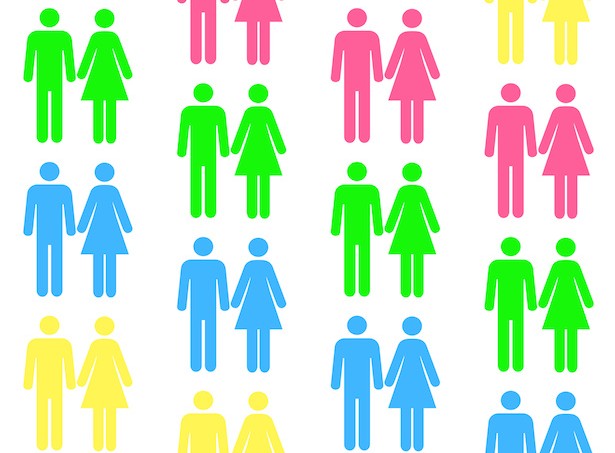The recent USCB shootings at the hands of self-professed misogynist and woman hater Elliot Rodgers has inspired women across the world to come forward with their own stories of sexism, gender discrimination, sexual harassment, and general instances of male entitlement. United under the hashtag “#YesAllWomen,” thousands of women shared enlightening and often heart-wrenching or terrifying stories of their experiences proving that, while infinitely more extreme, Rodgers’ actions and motivations aren’t isolated incidents but rather twisted values held by our toxic culture. While there are those who still deny that this is an issue of misogyny, the response to this terrible tragedy has raised critical discussion about the fear women undergo simply for being women. So, in part inspired by this article (and title) written by Arthur Chu in which he discusses romantic entitlement in the male nerd community, I was inspired to recount my own experiences on the matter as a “geeky” woman who games.
We often discuss how women with geeky interests are often invalidated by our male counterparts. Most female gamers I know have stories of how they’ve been told they’re “not real gamers” or “not real nerds.” We’ve been interrogated about our favorite games just so they could make sure we’re “legitimate” and not just faking an interest, although I have yet to see a male gamer go through similar treatment. We’ve been dismissed as gaming or wearing geeky apparel just to get (particularly sexual) attention. We get accused of cosplaying from certain series or certain characters just because of the way that we look in the costume rather than an interest in that series/character. Invalidation is probably one of the most widespread forms of sexism in the geeky/gaming communities and it often is the one we most often talk about. This is typically with good reason, as we attempt to dismantle the “boy’s club” nature of many of these communities.
However I rarely see topics related to men feeling romantically entitled to geeky women, which is a situation I have found myself in multiple times. This acts in a similar fashion as to why Elliot Rodgers felt like he was entitled to the attention of women and that it was his right to have them reciprocate his interest but with a “geeky spin.” My personal story involves an upperclassman at my high school who recognized my interests in video games. We talked awkwardly in the hallway a few times – although I felt a little intimidated and uncomfortable I tried to be as polite as I could. Although I made it fairly clear that I was only interested in being casual friends, he contacted me online professing how much he loved me and how he would be devastated if I didn’t reciprocate his feelings. I was barely even a teenager, had only really talked to him a few times, and yet he continued to message me about how depressed he was that he couldn’t have me, even going so far as to insinuate that he was suicidal. I was devastated; I didn’t have any romantic interest but I certainly didn’t want to drive him to self-harm. The guilt was immense.
It was only when I reflected on it later in life that I realized that he didn’t even know me. He knew certain things – mainly just my interest in video games and anime, and we hadn’t even discussed that at length. But despite that, he acted as if I had broken up a long-term relationship with him. Rather than dismissing me as a “fake geek girl,” he was infatuated with the idea of me as a geek girl, saw me as something he should be able to “have” romantically because of our shared offbeat interests. To use an analogy I heard another woman in a similar situation employ, he saw me as his real-life Ramona Flowers (although this was pre-Scott Pilgrim) or Manic Pixie Dream Girl. I believe he saw me as an entity of sorts, an offbeat woman to fill the role of his love interest. As much as I was genuinely concerned for his well-being, I realize that I didn’t owe him any sort of romantic affection.
While I consider my story a fairly “tame” one considered to others I’ve heard, every woman active in the general geek community seems to have their own story to share from the intersection of #YesAllWomen and misogynistic geek culture. Now more than ever I believe that it’s important to share these experiences so we can raise awareness of these issues and not let them go silenced or unnoticed.





3 thoughts on “Not Your Princess: Male Entitlement in Geek Culture”
I don’t agree with the tone of this article. It looks like a correlation vs. causation thing. It’s not geek culture that causes or even fosters the entitlement, it’s simply adolescence. Everyone goes through a phase where they find out that they don’t always get what they want. The problem is that it happens at vastly different times, mostly based on when people mature.
The correlation is that people who are shunned from ‘normal’ social groups mature at a slower rate, since they don’t get the interactions at proper or normal times. They don’t learn the critical “can’t always get what you want” lesson young enough that it doesn’t come at a terrible time later (puberty).
The causation is that society always has a bit of tribalism about it. There’s always an ‘us’ and a ‘them’. Sadly, in children, ‘them’ aren’t allowed to mature emotionally as fast as others. They just don’t get the same opportunities. The reason it seems like the entitlement comes only/mostly from ‘geek culture’ is because geeks are the outcasts from regular society. Most geeks are emotionally stunted and not nearly as mature as they should be given their age.
I’m sure there’s also some stuff to do with birth order in siblings, parents not taking an interest in raising their children, and blah blah, but the tl;dr is that it’s about maturity and people need to ‘grow up’ for lack of a better way of putting it. Geek culture is a byproduct of the same mechanism that prevents people from maturing as fast as others, so there’s often a lot of perceived cross over of cause and effect.
Also as a side note, there are many girls who do this too. Perhaps the male version is more vocal or aggressive, but without a way of quantifying ‘entitlement’ it’s hard to say whether the majority of these incidents come from men. Perhaps it’s because men are traditionally the ones who are supposed to ask out women, so the obsessions that women have don’t come to light nearly as often. Women are not immune to idealizing men.
I don’t think that Sarah is limiting her argument to geek culture at all. I think that she is using one specific incident that happened to her to contextualize a larger societal issue that is being caused by traditional conceptions of masculinity and the perpetuation of misogyny. And while I can agree that the behavior of the guy that Sarah mentions was immature, I would not simply write it off to adolescence. Millions of boys worldwide go through adolescence without ever treating women like something that they have earned access to simply by the fact that they were born male.
While I understand that your argument comes from a desire for consensus, it also smacks of “boys will be boys” which is another stereotype that has fed the sense of entitlement for men worldwide. While it is easy to look at a very specifically white, Western kind of masculinity in light of the UCSB tragedy we must also remember that this is a global problem where grown (and supposedly mature) men are kidnapping hundreds of Nigerian young girls because they are entitled to virgin wives (and entitled to sell them to other such entitled men), scarring the faces of women with acid (in India, Columbia, Pakistan, etc) because if they can’t have them no one else will either, engaging in corrective rape of young women who (because of their sexual orientation) have spurned their advances.
And while I wholeheartedly agree that this has everything to do with the way that men are raised, it has more to do with what society tells them is acceptable, what they are entitled to as men, and what they get a pass for under the guise of “boys will be boys”. And as for women who “do this too”, that tangent is too vague to really address, but it does leave me wondering because there is a big difference between playing to to idealized gender roles and maiming and murdering people because they have denied you that which you feel you are entitled to (namely their bodies).
I’m not saying that geek culture exclusively creates that sense of entitlement. What I tried to get across was instead how feelings of male entitlement work their way into geek culture and influence the way women in fandoms are treated.
However I would strongly argue that this phenomenon is not simply a case of immaturity. Although my example is one that, yes, involved adolescence, and that I’m sure immaturity factors somewhat into the formula (and my example) on a general level, this behavior is not exclusive to “immature men.” If there’s one thing that #YesAllWomen blatantly shows it’s that these attitudes and behaviors are ingrained into the culture and take place on a universal level. Many times I see what most people would consider “normal” men still participating in this system and demonstrating these behaviors. It’s not really appropriate to compare feeling entitled to a woman’s body or her romantic attention and the entitlement children feel to items or affection or whatnot as a result of their immaturity/age. The later is a product of their age (and other influences to an extent of course) but the former is a result of values and fantasies our culture teaches men they’re owed.
I don’t really understand per say what you’re trying to get at in the last paragraph. Of course women aren’t immune from harming men emotionally or physically in a similar way. But other than important race and sexuality based issues that involve white/cis/straight women (and “white feminism”) feeling entitled over women of color/non-heteronormative women (I’ve seen this especially in issues of white feminists glossing over the issues women of color face and assuming our experiences are universal), I disagree that female entitlement is built into the structure of our culture. I do, however, agree that men being pressured to play those roles is the result of the patriarchy, which is something we acknowledge as harmful to men as well.